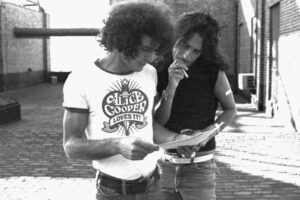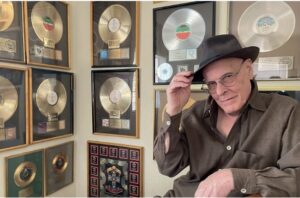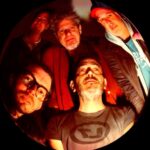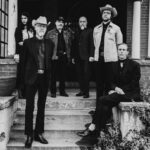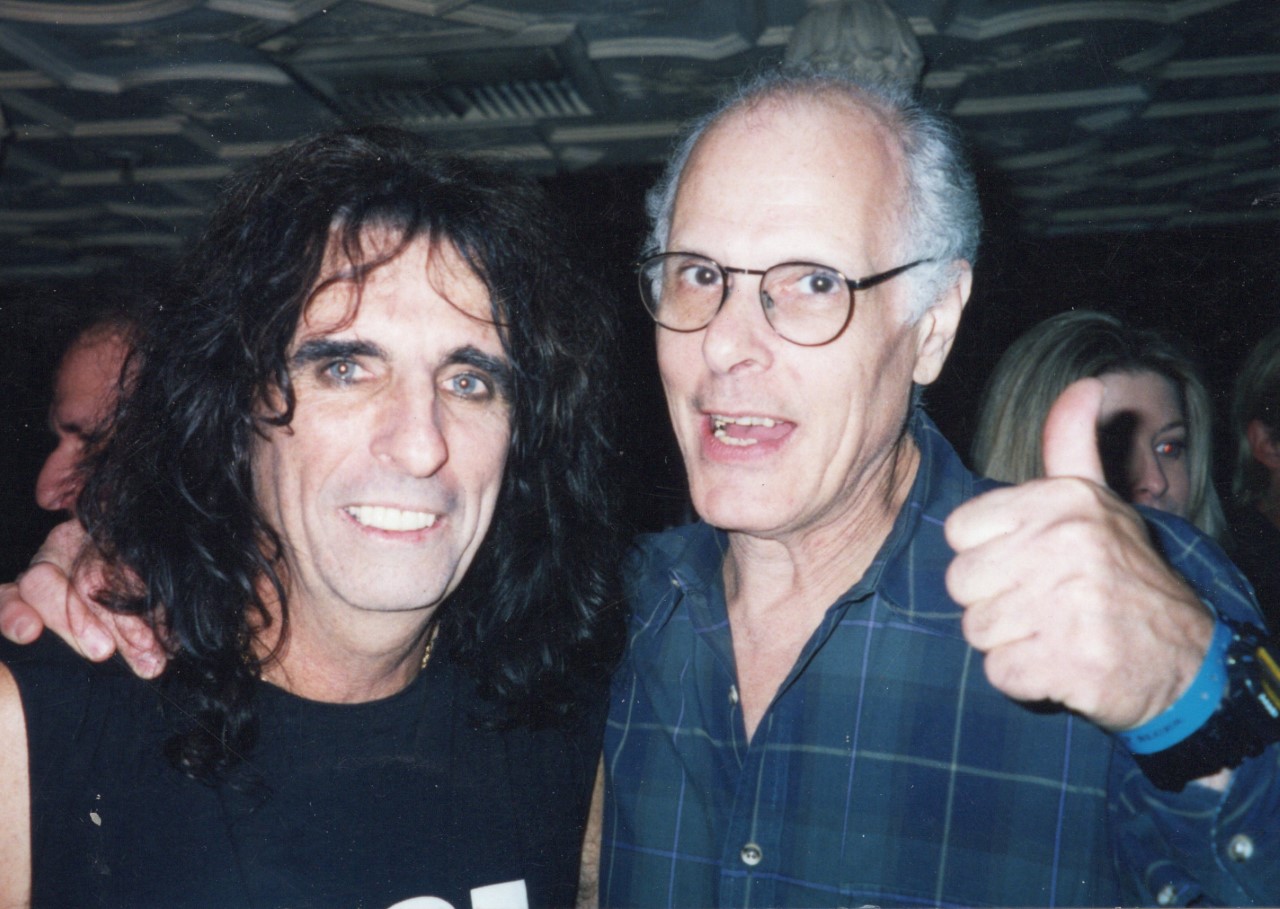
David Libert speaks to Jason Barnard about his remarkable life in the music. We cover his time in 60s group The Happenings, being tour manager for Alice Cooper and discovering Guns N’ Roses.
Hi David – why did you chronicle your life in Rock and Roll Warrior?
For the last few years, a lot of people have been telling me that I should write a book about my life in the music business, but it was my girlfriend Angie that convinced me that I actually had a story worth telling.
Was your family background musical?
My father, a lawyer by trade, played the violin and could play any song by ear. My parents soon realized that I possessed that same musical ability and encouraged me to take piano lessons to develop this musical trait.
Your first single was with The Four Graduates, what are your memories of the writing and recording it?
We didn’t write “A lovely way to spend an Evening” but we did write “Denise”. It was written as a favor for a friend of who was vying for the affections of a girl named Denise. It worked.
What led you to joining and then leaving the Air Force?
I had just suffered the tragic death of my then girlfriend and was drifting around rather aimlessly after that. My mother said, “get a job, go to college or join the military. You’ve got to do something.” The military seemed to be the best way to shake things up in my life. It certainly did. But I lacked the discipline to adhere to their strict regimen. After a couple of years of putting up with me, the Air Force ended up throwing me out.
How did you link up with The Tokens and form The Happenings?
After I left the Air Force, I started to hook up with my old singing buddies in Paterson once again. We were a little older and a lot more focused. I started to hit the streets of Broadway in New York City whenever I could to look for opportunities. There were several buildings that housed various entertainment companies in this area of Manhattan, often referred to as “Tin Pan Alley.”
The Brill Building was the most famous of these, but there were others. If I walked into the offices of a music publishing company, I told them I was a songwriter. If it was a record company or record production company, I was in a singing group.
It went on like that for a few weeks, until I happened to step into an office called Bright Tunes Productions. It was a company owned and run by The Tokens, a singing group from the Brighton Beach section of Brooklyn. They had a few huge hits under their belt, including “The Lion Sleeps Tonight” and “Tonight I Fell in Love.” After listening to our demo, they became very interested in our little singing group. Now we needed to come up with a new name. The Tokens felt that The Four Graduates was somewhat passé. We gave some consideration to The Bitter Lemons and The Corduroys, but in the end, we decided to call ourselves The Happenings. I am so grateful that I would not be known as a Bitter Lemon for all eternity.
The Tokens offered me and my songwriting partner Bobby Miranda a job writing songs for $25 each per week. Bobby and I would have our own little room with a piano inside their offices. Part of the deal was that they agreed to produce The Happenings.
What are your memories of working with Bob Crewe (The Four Seasons producer and songwriter)?
Bob Crewe needed reliable background singers for his many productions. We fit that bill perfectly and it kept us from starving to death while we pursued our own careers. Bob Crewe was good education for us. He was very knowledgeable about all the various aspects of the recording process.
What are your highlights with The Happenings and having huge hit records with ‘See You in September’ and ‘I Got Rhythm’?
For most of the the summer of 1966, we had the # 1 record in the country and we got booked onto the Dick Clark Cavalcade of Stars tour which didn’t pay us very much money but it did give us the opportunity of performing in front of 15,000-20,000 people every night and with each show, we were honing our performing skills That was our first real taste of success. By the time I Got Rhythm hit the top of the charts, we were booked on the Smothers Brothers TV Show, which was the # 1 TV show in the U.S. That’s when I felt that we really made it.
The Happenings broke free from The Tokens and wrote and recorded the 1969 LP Piece of Mind. Was that a conscious decision to change your sound and was it tricky not having the support you needed?
The new album redefined who The Happenings were. Instead of the syrupy pop group sound of our past hits, we had applied our harmony techniques to much more contemporary themes. But the album didn’t take off the way we were hoping it would. Jubilee Records just didn’t know what to do with it. I felt that we needed to exhibit our new musical direction to a broader audience by performing the new songs live.
I asked our agent, Al DiMarino, to get us a showcase in Los Angeles at the Whiskey A Go Go in West Hollywood. It was the perfect venue for our purposes. The Whiskey had its own special vibe. I feel it every time I walk into the place. If you’ve ever been there, I’m sure you know what I’m talking about. Also, 200 people could make the place look crowded. This was good. I was pleased.
Now we all needed to get to work and restructure the show: less shtick, fewer comedy routines, much more focus on the music.
None of this sat well with the rest of the band. They saw the future of The Happenings as a nightclub act, not a modern rock band. They reasoned they could play nightclubs for the next 20 years, with or without hit records. They saw nightclubs as insurance against obsolescence. I saw nightclubs as the very definition of obsolescence. So when it came to the business of revamping our show, they resisted every change at every juncture. I simply could not get them to rehearse the new album songs and include them in the show.
What led to The Happenings splitting and what did you do next?
The Whiskey crowd was used to seeing cutting edge bands. What they got that evening was an antiquated nightclub act. It was the only time I can ever remember The Happenings bombing in front of an audience. It was humiliating. he band blamed me for forcing them to do something they didn’t want to do. I blamed them for not even trying. I felt like a beaten dog. I staggered back to my hotel room that night. By the time I got there, I had made up my mind. I was going to leave The Happenings
Over the next couple of years, I found various employment opportunities within the music industry; I got a job working for Action Talent. They managed Johnny Maestro & The Brooklyn Bridge, as well as The Five Stairsteps. After that, I was hired by the Willard Alexander Agency. Willard was an old-school booking agent, whose stable consisted mainly of big bands from a bygone era, like the orchestras of Count Basie, Duke Ellington, Tommy Dorsey, and Benny Goodman. I wasn’t crazy about booking these bands. This job equated to several months of torture, but it was another valuable lesson in my quest to learn as much about the music industry as I could. After Willard, I became the house booker for a club on Long Island. Then I got a job as road manager for Rare Earth. This gig was great. Then one day, I got a call from Alice Cooper’s booking agent, Jonny Podell. He told me that the band was looking for a new tour manager.
When did you first meet Shep Gordon and how did you find managing The Alice Cooper Group?
On Jonny’s strong recommendation, Alice Cooper’s manager, Shep Gordon, decided to hire me as Alice’s new tour manager. Shep drove me up to Greenwich, Connecticut, where the band, along with their roadies, girlfriends, and pets, were all living in this old, somewhat run-down mansion, the Galesi Estate.
The mansion had a huge ballroom, which was set up for rehearsing and for trying out the new props that the band’s record company, Warner Bros., had constructed for the band as per Shep and Alice’s instructions. There had been an electric chair, a guillotine, and now, a gallows. On this particular day, the road crew was practicing hanging Alice so they wouldn’t actually kill him in the process. They needed to make sure it would be safe to hang Alice on stage every night.. I was amused. This was gonna be a fun gig.
What was touring like in the early 1970s?
It was a lot of fun but also a lot of hard work. But it was also incredibly exhilarating. After all, this was during the golden age of rock ‘n roll. There are lots of great stories during this era. Thats what the book is all about, so go out and buy the book.
What was the dynamic between Alice at that time and the rest of the group – did that change?
Just like almost every band I have ever been involved with, there were issues of jealousy. Alice was the star, while the rest of the band felt that they all should be perceived as equal partners. In a business sense, they were. But it was more than just Alice getting all the attention. The band was getting tired of all the stage props and special effects. They felt that it detracted from them being thought of as serious musicians. After all, they felt, wasn’t it the music that mattered the most? There were no theatrics when someone listened to an Alice Cooper album. It was just the music, and there was no denying that the music held up astonishingly well on its own.
The release of Bob Greene’s book about the band, Billion Dollar Baby, served to drive the wedge between Alice and the band even further. When Alice read the book, he discovered that his band mates, his childhood friends, were saying horrible things about him behind his back. It was all in the book for everyone to see.
With the completion of the Muscle of Love LP, everyone was simply worn out from years of continuous recording and touring. The one thing that Alice and the rest of the band did agree on was that it was time to take a much-needed break.
The down time gave at least two of the band members the opportunity to do something that they were yearning to do: record their own solo albums. In short order, and without Shep’s involvement, Michael Bruce went ahead and secured a solo album deal for himself.
Maybe Michael Bruce figured he could do his own solo album; and then, when it was time to record the next Alice Cooper album, he’d be right back in the studio as if everything was normal. Unfortunately for Michael Bruce and the rest of the band, the next Alice Cooper album, Welcome to my Nightmare, would not include them. Alice had decided that he wanted to record a solo album too.
The band confronted Alice. “You can’t do that.”
“Why not? You guys recorded your own solo albums. Why can’t I record a solo album too? Because I’m Alice Cooper? Does that sound fair?” That was pretty much the end of the original band members.
How did solo Alice compare with the group?
Dealing with one star instead of five certainly made my job easier but from my perspective, it was more or less, the exact same job.
George Clinton’s music and business affairs are unique – what was he like to work with?
It was difficult. but it was really the incredible music and the fan reaction that made it all worthwhile. The money wasn’t bad either.
You spotted the potential of Guns n Roses but weren’t able to sign them. What are your recollections of that period?
It was immediately obvious to me that these guys were something very special. They wrote incredible songs. Axl has an amazing voice that could shatter glass. His enormous vocal range has no parallel in rock that I am aware of. The whole thing just reeked of animal magnetism. I was completely blown away. They were the real deal. I mean, they were “the Real Deal.” They simply were NEVER NOT the band. Whether they were together or alone, they were always Guns ‘N Roses – a very potent elixir. Their undeniable presence affected everyone who came into contact with them. Including me. I wanted to manage them but at this particular moment in my life, I was not in a financial position to do so and my efforts to find the funding eluded me. So I had to walk away. Of course, Appetite for Destruction went on to sell over 20 million copies, and Guns ‘N Roses became one of the most successful bands in the world. For my early efforts, the band presented me with a multi-platinum record award. Nice, but hardly the outcome I was looking for.
What led you to working with Living Colour and do you think they’ve been under appreciated in the music business given their talent?
I was contacted by Glen Murdock of Mother’s Finest to get hold of Will Calhoun, Living Colour’s drummer. After almost a decade, they were thinking about getting back together again. That phone call with Will led to them reuniting again. I was thrilled. I think they are one of the very best live bands that ever existed . But I think those 10 years of inactivity hurt them in the end. That’s why I think they were somewhat under appreciated.
What are your other interests and what are you currently doing?
I’ve become an avid animal rights activist living in the California High Desert in Southern California near Joshua Tree. I spend my time personally rescuing dogs and finding loving homes for others. I have three right now now, Harold, Barney and Trundle. The joy they bring into my life is immeasurable.
David Libert’s autobiography – Rock and Roll Warrior: My Misadventures With Alice Cooper, Prince, George Clinton, Living Colour, the Runaways and More is out now.
